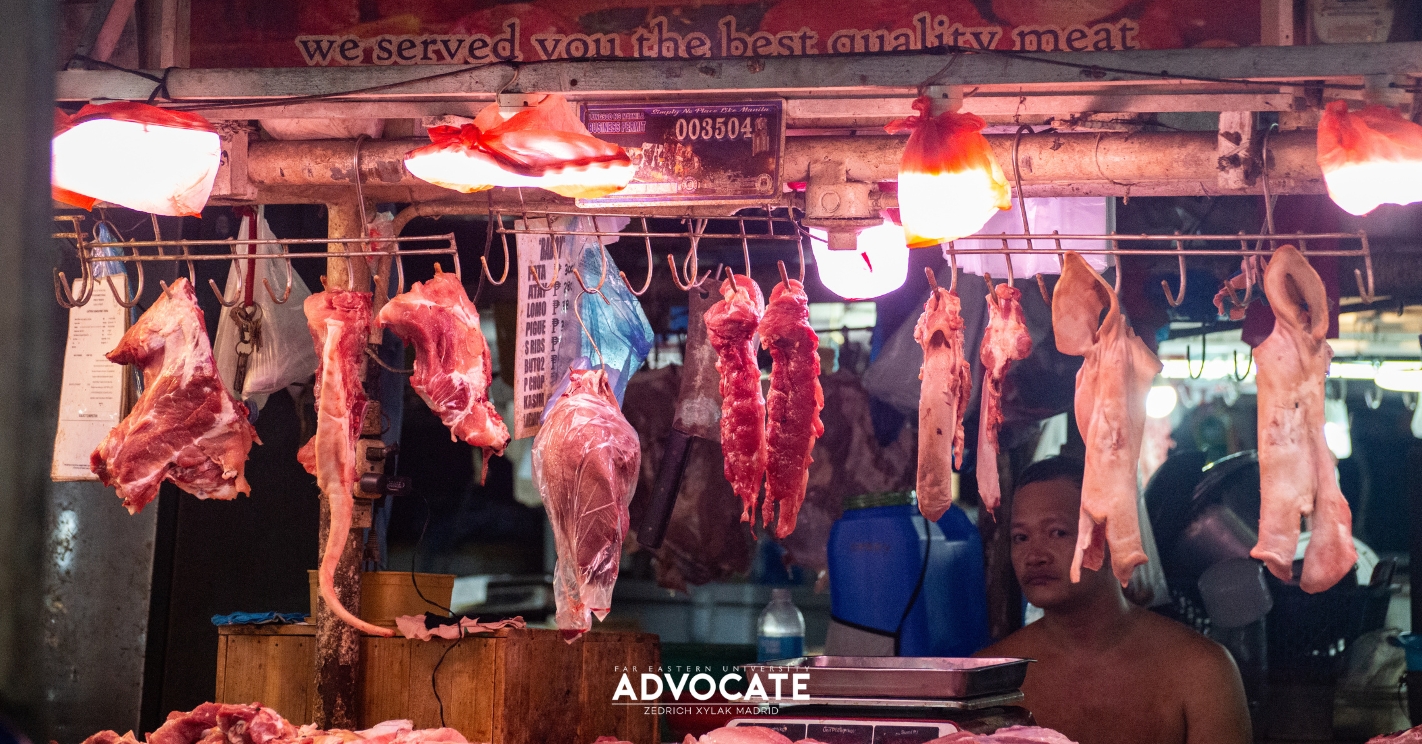
FEU, hinabol ng UPHSD, ininda ang unang talo
- August 14, 2024 20:06
FEU Advocate
December 01, 2021 09:54

Establishing vaccine confidence has always been one of the long-term goals in the health sector, especially in the pursuance of universal healthcare. However, vaccine hesitancy remains to be prevalent. As media experts master the use of media to achieve greater means, the Far Eastern University (FEU) Communication Society (CommSoc) organized “Ano Na Vax?!,” a webinar tackling the role of the new media in building vaccine confidence, last November 20, 2021.
Various public and private health organizations work hand in hand to retrieve the lost faith of the Filipinos in the vaccines amidst the Coronavirus Disease 2019 (COVID-19) pandemic. Even before the first batch of COVID-19 vaccines had arrived in the country, different sectors and organizations were already encouraging everyone to be vaccinated as this can help the nation in many ways, mainly with the revival of the economy and workforce and the promotion of safety against further spread of the pandemic.
Yet, people were still hesitant due to the history of vaccination in the country. This could be rooted in the information they receive regarding vaccines which varies sources.
There are credible sources, such as peer-reviewed studies and official statements/resources from government and non-government institutions, and there are deceptive ones, such as lies, hoaxes, conspiracy theories, and hearsays.
As the country fights off two pandemics, the COVID-19 and the “infodemic (the surge of information including false and/or misleading ones during significant health events, like disease outbreak and pandemics),” it is important to pursue continuous and progressive education about vaccination.
Losing Vaccine Confidence
According to the study entitled “Interrogating COVID-19 Vaccine Hesitancy in the Philippines with a Nationwide Open-Access Online Survey,” 37.4-percent of the 7193 participants displayed vaccine hesitancy (Caple et al., 2021).
One of the significant factors that affected vaccine confidence is the 2016 Dengvaxia Scandal. Briefly, the said controversy is made up of abrupt governmental decisions, misuse and sensationalism of media, the creation of infodemic, and politicization of the issue.
Up until now, the word “Dengvaxia” serves as the scapegoat that further reinforces the hysteria of vaccine scare among the Filipinos.
Another factor is the infodemic of hoaxes about alternative medicines against the COVID-19, especially the usage of Ivermectin as oral preventive (prophylaxis) medication for the said disease. Generally, Ivermectin is used for treating “intestinal strongyloidiasis and onchocerciasis, two conditions caused by parasitic worms” (FDA, 2021).
Despite being seen by some as a “miracle” drug by some against COVID-19, no health organizations recommended its usage as prophylaxis or treatment.
With this, the webinar addressed the potential of using new media to promote vaccine confidence among the netizens. This can greatly help the country progress in fighting the pandemic, especially the attainment of herd immunity.
Empowering Filipino citizens in the age of new media
Staying true to their department’s mantra “May alam, may pakialam,” FEU CommSoc once again delivered a powerful webinar to address the issues of vaccine hesitancy in the age of social media last November 20.
Neil Juliano, the organization’s President, voiced that the event was conceived while conducting a thesis about COVID-19 vaccination contents on social media. Being future media practitioners, FEU CommSoc aims to fight the disinformation surrounding the virus and the vaccine.
“Hopefully, the participants can demonstrate an understanding of the vital role of the new media in building vaccine confidence and to discern their responsibility as media literates to address current challenges in society using social media,” Juliano shared.
The roundtable discussion was filled with esteemed guest speakers, specifically from fields of medicine and vaccinology.
Dr. Lulu Bravo, Professor Emeritus at the College of Medicine, University of the Philippines (UP) Manila, and Executive Director of the International Society of Tropical Pediatrics, was the keynote speaker of the said event.
Other notable guests were Mr. Jun Ryan Orbina from the World Health Organization (WHO) Philippines Country Office, Mr. Sherwin John Malubay from FEU Department of Communication, and Ms. Karen Panela from FEU Faculty Association.
The event was just in time for the 3-day National Vaccination Drive from November 29 to December 1, which targets vaccinating 5 million Filipino citizens each day. Given that the first rollout was not a success, Dr. Bravo hopes that the webinar can empower more people to get vaccinated.
“On March 1 [first rollout of vaccine], I remember [there were] only 600 vaccinees in three hospitals,” Dr. Bravo voiced.
She also mentioned the essence of good communication in ensuring the public is well-informed about the benefits of getting the vaccine while also eliminating any doubts about it.
On the other hand, Mr. Orbina reiterated that the public should still observe the minimum health standards such as handwashing, wearing face masks, social distancing, and good ventilation in places of congregation.
In light of the possibility of returning to limited face-to-face classes next year, it is crucial to encourage every student, teaching, and non-teaching faculty to be vaccinated so that they are protected against COVID-19. It is also the responsibility of each individual to spread the word about the efficacy of vaccines in combatting the virus to help diminish the long-standing doubts of the public. Most importantly, these pieces of information should be disseminated in a manner that is easily understood by the public to avoid confusion or doubts.
The Ano Na Vax?! webinar is now available for streaming at FEU CommSoc’s official Facebook page.
- Yuichi Desquitado and John Vincent Cruz
(Photo courtesy of FEU CommSoc)
References
ABS-CBN News. (2021, April 12). DOST shuns Philippine clinical trial for ivermectin vs COVID-19 | ABS-CBN News [Video]. YouTube. https://youtu.be/EC0enmk_5ek
Al Jazeera. (2021, February). How the Philippines lost faith in vaccines. https://interactive.aljazeera.com/aje/2021/how-philippines-lost-faith-in-vaccines/index.html
Caple, A. et al. (2021). Interrogating COVID-19 Vaccine Hesitancy in the Philippines with a Nationwide Open-Access Online Survey. medRxiv. https://www.medrxiv.org/content/10.1101/2021.09.11.21263428v1.full.pdf
CNN Philippines. (2021, June 30). DOST: PH now part of global consortium for ivermectin clinical trials. https://www.cnn.ph/news/2021/6/30/DOST-ivermectin-clinical-trials-international-consortium.html
CNN Philippines. (2021, October 28). Ivermectin clinical trials pinaghahandaan | Newsroom Ngayon [Video]. YouTube. https://youtu.be/32TwRPzszhI
Ferreras, V. (2021, November 1). Ivermectin clinical trials eyed on Nov. 15 — DOST. CNN Philippines. https://www.cnnphilippines.com/news/2021/11/1/ivermectin-clinical-trials-Nov.-15-DOST-.html
Luci-Atienza, C. (2021, June 25). PH now part of int’l Ivermectin clinical trials consortium. Manila Bulletin. https://mb.com.ph/2021/06/25/ph-now-part-of-intl-ivermectin-clinical-trials-consortium/
U.S. Food and Drug (FDA). (2021). Why You Should Not Use Ivermectin to Treat or Prevent COVID-19. https://www.fda.gov/consumers/consumer-updates/why-you-should-not-use-ivermectin-treat-or-prevent-covid-19









